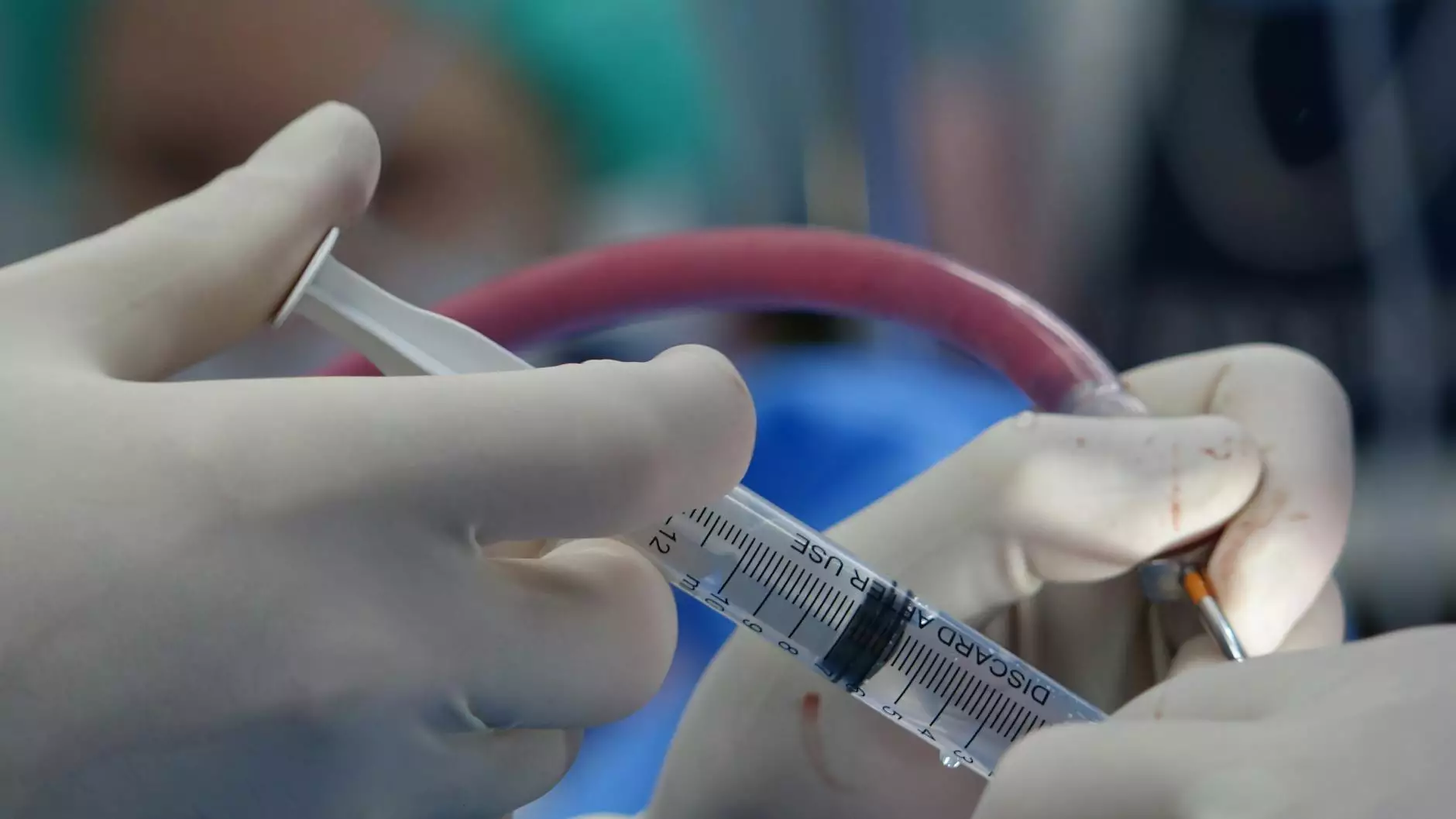Understanding the Role of **Doctors of Thoracic Surgery**

Thoracic surgery is a highly specialized field dedicated to the treatment of diseases and conditions affecting the chest area, including the lungs, heart, and other vital organs. In this article, we will delve deep into the crucial role that doctors of thoracic surgery play in modern medicine, the common procedures they perform, and how they impact patient care and health outcomes.
What is Thoracic Surgery?
Thoracic surgery involves surgical interventions on organs contained within the thorax, or chest, including the lungs, esophagus, heart, and major blood vessels. Thoracic surgeons are equipped with the skills necessary to serve patients suffering from a variety of conditions, ranging from cancer to traumatic injuries.
The Importance of Doctors of Thoracic Surgery
These highly trained specialists are indispensable in diagnosing and treating serious health issues. Their expertise focuses not only on performing surgeries but also on preoperative and postoperative care. This holistic approach ensures that patients receive comprehensive treatment, optimizing their chances for recovery and improving their quality of life.
Common Conditions Treated by Doctors of Thoracic Surgery
Thoracic surgeons are involved in a wide range of medical conditions, including:
- Lung Cancer: One of the most common reasons for thoracic surgery, requiring precision and expertise in its treatment.
- Esophageal Cancer: Surgical intervention is often necessary for removal and reconstruction.
- Chest Wall Deformities: Conditions such as pectus excavatum can greatly affect appearance and function.
- Pleural Diseases: Issues involving the pleura can cause significant respiratory distress and require surgical intervention.
- Cardiac Issues: While primarily the domain of cardiologists, thoracic surgeons may work on specific surgical interventions related to the heart.
Types of Thoracic Surgical Procedures
Doctors of thoracic surgery perform several types of procedures, each requiring specialized knowledge and skill. Below are some of the most performed surgical interventions:
Open Thoracotomy
This traditional approach involves making a large incision in the chest to access the organs. It is often necessary for extensive surgeries, such as lung resections.”
Minimally Invasive Surgery (MIS)
Advancements in technology have enabled surgeons to perform many procedures using smaller incisions, leading to faster recovery times and less postoperative pain for patients. Techniques include:
- Video-Assisted Thoracoscopic Surgery (VATS): A technique that uses a camera to guide the surgery.
- Robotic Surgery: Allows for greater precision and control during surgical procedures.
Lobenectomies and Pneumonectomies
These procedures involve the removal of a lobe of the lung or an entire lung, respectively. They are crucial in treating lung cancer and other significant lung diseases.
Esophagectomy
The surgical removal of all or part of the esophagus is often performed to address esophageal cancer.
The Training of Doctors of Thoracic Surgery
Becoming a thoracic surgeon requires extensive education and training. The path typically includes:
- Undergraduate Education: A bachelor’s degree in a relevant field.
- Medical School: Four years of medical education leading to a Doctor of Medicine (MD) or Doctor of Osteopathic Medicine (DO).
- Residency: A minimum of five years in general surgery, followed by an additional 1-2 years in thoracic surgery specialization.
- Board Certification: Achieving certification from a recognized board, which involves rigorous examinations related to thoracic surgical practices.
Patient Care and Consultation
Doctors of thoracic surgery play a critical role in patient consultations and care. Prior to any surgical intervention, a thorough evaluation is essential. This process includes:
- Medical History Review: Assessing prior treatments, surgeries, and existing health conditions.
- Diagnostic Tests: Utilizing CT scans, MRIs, and other imaging techniques to determine the best course of treatment.
- Preoperative Counseling: Providing education about the surgical process and potential risks.
Technological Innovations in Thoracic Surgery
The field of thoracic surgery is continuously evolving, thanks to rapid advancements in technology. Some innovative tools and techniques include:
- 3D Imaging: Enhances surgical planning and precision by providing a comprehensive view of the thoracic cavity.
- Robotics: Minimally invasive techniques using robotic tools that allow for enhanced precision during surgery.
- Telemedicine: Expanding access to consultations and follow-ups through digital platforms, allowing more patients to receive expert advice.
Postoperative Recovery and Follow-up Care
Post-surgery, patients require careful monitoring and follow-up care. The responsibilities of doctors of thoracic surgery include:
- Managing Complications: Being vigilant in identifying and addressing any signs of complications.
- Rehabilitation Protocols: Working with physiotherapists to develop a recovery plan that includes breathing exercises and mobility training.
- Long-term Follow-up: Regular check-ups to monitor health and ensure recovery is progressing as expected.
Choosing the Right Doctor of Thoracic Surgery
Finding a qualified thoracic surgeon is crucial for ensuring optimal outcomes. Here are key factors to consider:
- Experience and Specialization: Look for surgeons who specialize in the specific procedure you need.
- Hospital Affiliation: Research the hospitals or medical centers they are affiliated with to ensure they have a good reputation.
- Patient Reviews: Reading testimonials and reviews can provide insight into a surgeon's quality of care.
Conclusion
Doctors of thoracic surgery play an indispensable role in diagnosing and treating critical health conditions. Their specialized skills and commitment to patient care are crucial in improving health outcomes for those suffering from thoracic diseases. Whether through surgical intervention or comprehensive patient management, these professionals are at the forefront of modern medicine, utilizing advanced techniques and technologies to provide the best possible care. For those in need of thoracic surgical services, seeking out a highly qualified thoracic surgeon can be the first step toward regaining health and well-being.
Contact Us
For more information or to schedule a consultation, visit our website at neumarksurgery.com. Your health is our priority, and we're here to support you every step of the way.









